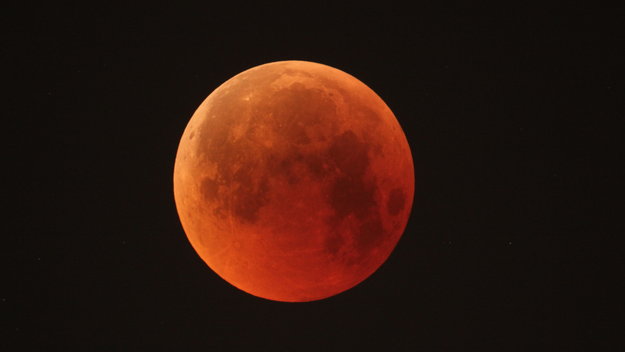Astronomy and astrophysics researchers at the University of Nigeria, Nsukka (UNN) in Enugu State said on Saturday, January 19, 2019 that there was nothing to fear over the expected total lunar eclipse on Monday.

The researchers said eclipse is a natural occurrence that helps scientists understand the celestial body.
The scientists made the remarks in separate telephone interviews with the News Agency of Nigeria (NAN) in Abuja.
One of them, Dr Bonaventure Okere, while reacting to the lunar eclipse expected to take place on Monday, said some people still misunderstood the natural occurrence.
Okere, who is also the Acting Director, Centre for Basic Space Science (CBSS) Nsukka, said some people still attach spiritual meanings to eclipse which should not be so.
Lunar eclipse occurs when the moon appears darkened as it passes into the earth’s shadow and occurs only when the sun, earth and moon were exactly aligned with the earth between the two.
It can occur only on the night of a full moon. The type and length of a lunar eclipse depend on the moon’s proximity to either node of its orbit.
The National Space Research and Development Agency (NASRDA) predicted that Nigeria would experience total lunar eclipse on Monday.
Okere said: “For the scientists, eclipse helps them to study and understand the shape of the celestial bodies but for the lay man, it is just to demystify some myths.
“Some people attach some spiritual meanings to it which is not meant to be.
“Some people may see it and think that the world is coming to an end. We create the awareness to sensitise people that it is not something to be frightened about.
“People should understand that a lot of things happen naturally, and it is the scientist who is left to inform people about such occurrence”.
He said that the total lunar eclipse would be the last eclipse to be experienced until 2021.
Prof. Augustine Ubachukwu, leader of the researchers, said unlike solar eclipse, which occurs when the moon completely covers the sun’s disk, lunar eclipse was safe to view.
Ubachukwu said: “People can view the lunar eclipse without any eye protection or special precautions, as they are dimmer than the full moon.”
According to him, the total phase of this total lunar eclipse will be visible from North and South America, and Western parts of Europe and Africa.
“Central and Eastern Africa, Europe, and Asia will see a partial eclipse of the Moon.
“The lunar eclipse begins at 3:36 a.m. early Monday and last until 8:48 a.m., starting and ending as the moon passes through the penumbra (the lighter part) of the earth’s shadow”.
The team leader said the whole duration of the eclipse would be one hour, one minute and 58 seconds.
He further said the whole process would include partial eclipse initially, full eclipse, maximum eclipse, full eclipse again, moon set and ending with a partial eclipse.
Ubachukwu also said people should not be scared, as the eclipse was one of creation’s mysteries.
By Ijeoma Olorunfemi
